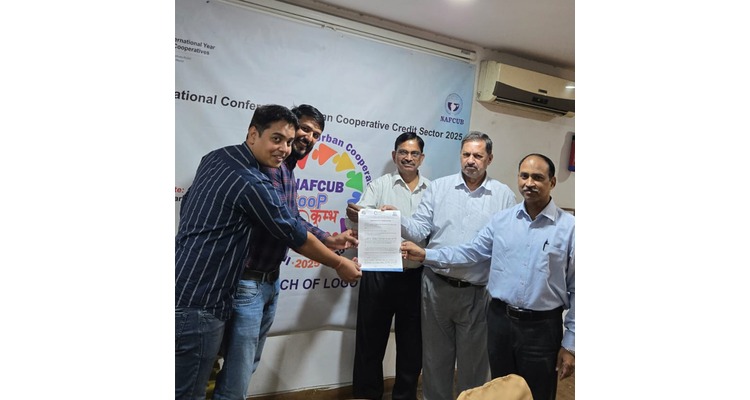The budget signals a growth-oriented approach: Tarun Nazare, Co-Founder and CEO, Neokred Technologies
“The 2024 budget offers a mixed landscape for Indian entrepreneurs. Positives include fiscal consolidation, support for Micro, Small and Medium Enterprises (MSMEs), startups, infrastructure development, Electronic Vehicle (EV) manufacturing and tech-focussed initiatives. However, concerns persist regarding high inflation, the absence of middle-class tax relief and the challenge of efficient implementation. The budget signals a growth-oriented approach, fostering innovation and investment, yet inflationary pressures and tax burdens may constrain consumer demand and operational costs. Entrepreneurs remain cautiously optimistic, emphasising the importance of effective implementation and measures to address economic challenges. The budget’s true impact will unfold over time, shaping India’s business environment and entrepreneurial landscape.
Lower interest rates could be positive for banks: Vivek Banka, Co-founder, GoalTeller
“The current budget is great considering this was a politically-sensitive year and the Finance Minister’s pursuit of focussing on a healthy balance sheet should help immensely in fresh inflows from foreign institutions on Indian debt as well as equity. Interest rates look to have had an intermediate top last year.
“Lower interest rates could be positive for banks, real estate companies and other interest rates-sensitive sectors. It would also result in healthier corporate balance sheets due to lower interest burden.”
The government’s focus is on simplifying business processes: Devan Gupta, Co-Founder and Partner, Cretum Advisory
“In this budget, the tax slab remains unchanged for the common man, ensuring no taxes are applicable on income up to Rs 7 lakh under the default “New Tax Regime.” The government’s focus is on simplifying business processes, and they have withdrawn outstanding direct tax demands, including Rs 25,000 for FY 2009-10 and Rs 10,000 for FY 2010-11 to 2014-15. Additionally, there is a relaxation in TCS on foreign remittances under the LRS scheme, with the TCS rate reduced from 20 per cent to five per cent, and no TCS imposed on expenses up to Rs 7 lakh.
“The issue surrounding the optional nature of Input Service Distributor (ISD) and cross-charging, previously resolved by a government circular allowing companies to choose whether to adopt ISD, has been reignited due to a new government proposal mandating the use of ISD. This change means companies will now face an increased compliance burden, as they will be required to register for ISD and additionally determine situations where cross-charge invoices need to be issued between branches that share the same PAN, but have different GSTN numbers.”
Absence of concrete AI plans leaves some uncertainty: Rustom Lawyer, Founder and CEO, Augnito
“The interim budget 2024’s focus on growth and innovation creates a promising landscape for both healthcare and technology in India. The projected seven per cent economic growth and $5 trillion GDP within three years paint a positive picture, and initiatives like the Rs 1 lakh crore corpus for low-interest R&D loans provide fertile ground for home-grown solutions. Expanding healthcare coverage to ASHA and Anganwadi workers is commendable, but the absence of concrete AI plans leaves some uncertainty. Perhaps, these will be addressed in the July budget, but the focus on ‘deep tech’ for defence suggests the government recognises the strategic importance of such technologies.
“Encouragingly, the budget utilises the existing hospital infrastructure to increase medical college capacity, addressing a crucial need. Additionally, unifying maternal and child health schemes streamlines implementation, while the “U-Win” platform for immunisation management demonstrates a continued commitment to public health.
“Overall, the budget lays a strong foundation for future investment in both healthcare and technology. While we await further clarity on AI, the emphasis on research, infrastructure and accessibility creates exciting opportunities for progress. At Augnito, we stand ready to contribute to a self-reliant India through innovative healthcare solutions, aligned with the government’s vision.”
Budget sets the stage for a more inclusive and vibrant employment landscape: Anshuman Das, CEO and Co-founder, Careernet
“As we witness the unprecedented pace of infrastructure development in all facets—be it digital, social, or physical—it is evident that the government’s commitment to progress is unwavering. The financial provisions outlined by the Finance Minister signal a paradigm shift, especially in the empowerment of women. With 300 million Mudra Yojana loans, the nation is fostering entrepreneurial spirit, while the remarkable 28 per cent surge in female enrolment in higher education speaks volumes about the strides in education equality. Notably, our optimism is further fuelled by the impressive 43 per cent representation of girls and women in STEM courses, showcasing a commitment to diversity and inclusivity. At Careernet, we embrace this forward momentum, recognising the correlation between education, empowerment, and the rising participation of women in the workforce. This budget sets the stage for a more inclusive and vibrant employment landscape.”
Triple benefits for bond, equity and commodity markets: Nehal Mota, Co-Founder, Finnovate
“This budget showed fiscal prudence, with revised estimate for fiscal deficit of FY24 pegged 10 bps lower at 5.8 per cent. For FY25, fiscal deficit is pegged sharply lower at 5.1 per cent of GDP, against street estimates of 5.3 per cent-5.5 per cent. Fiscal prudence will please global investors and rating agencies. The sharply lower fiscal deficit means lower borrowings, which will help bond yields taper. Most PSU banks, with substantial bond holdings gain from the move.
“While the direct and indirect tax changes were reserved for full budget, there were some interesting takeaways. With fiscal deficit pegged at 5.1 per cent of GDP for FY25 and buoyant tax revenues, expect bond yields to taper. This benefits banks and mutual funds holding bonds and financially sensitive stocks. A focus on railways, agriculture (including post-harvest partnerships), and green energy will be value accretive. Lower fiscal deficit positively impacts debt and equity markets. Further, the Rs1 trillion corpus to offer 50-year interest-free loans to innovative technologies is a boost to high technology.”
We look forward to additional initiatives towards technological advancements: Aditya Sanghi, Co-Founder and CEO, Hotelogix
“We would like to commend the Finance Ministry for its unwavering dedication to advancing tourism, recognising its pivotal role in shaping India’s economic prosperity and cultural legacy. The pressing challenge posed by the high cost of financing in India emphasises the immediate need for strategic initiatives. The budget paves the way for a new era of growth by catalysing investments in crucial areas such as port connectivity, tourism infrastructure and amenities. Such targeted investment not only amplifies tourist inflows, but also elevates the quality of the traveller experience, providing a substantial boost to the hospitality sector. As the tourism sector undergoes transformation, the integration of technology into travel and hospitality becomes a critical requirement. Technological advancements promise heightened efficiency and improved service quality, making it essential for the sustainable growth of the industry. We eagerly look forward to additional initiatives in this direction from the government, along with active participation from both public and private stakeholders.”
Providing long-term loans to states is a strategic move: Chirag Agrawal, Co-Founder, TravClan
“The growth of tourism hinges on investment. We appreciate the government’s steps towards enhancing iconic tourist centres and investing in tourism and connectivity infrastructure. Providing long-term loans to states is a strategic move that will stimulate sustained development, unlocking the full potential of India’s tourism. We anticipate further government initiatives aimed at bolstering our air infrastructure and hospitality sector. This progress will not only attract global exploration of our heritage, but also stimulate local economies and foster national pride.”
The budget is a testament to government’s recognition of the multi-faceted aspects of healthcare: Nabil Arrach, Founder, Progenesis
“We appreciate the notable emphasis on women and child healthcare in the budget unveiled today. The augmented allocations signify a pivotal and imperative role the government is set to bring in the healthcare sector for all. Our resonance with the budget’s trajectory stems from a shared understanding of the strong impact these allocations can have in shaping the healthcare landscape. The government’s commitment towards eradicating sickle cell anemia, coupled with the introduction of impactful health schemes and initiatives combating cervical cancer, underscores a strategic and thoughtful approach. The visionary steps taken by the government align seamlessly with our own dedication to advance reproductive health and genetic well-being. The comprehensive nature of these initiatives reflects not only a commitment to address immediate health concerns, but also a foresighted approach to cultivate a healthier future for generations to come. We view the budgetary allocations as not just financial provisions, but as a testament to the government’s recognition of the multi-faceted aspects of healthcare.”
The budget aligns well with the impetus required for AI and technology sectors: Abhinav Jain, Co-Founder and CEO, Almonds AI
“Government’s forward-looking budget aligns well with the impetus required for the AI and technology sectors. The focus on digital infrastructure lays a robust foundation for innovation and the commitment to skill development among youth mirrors the mission to empower the next generation with AI capabilities. The support for electric vehicles and clean energy initiatives resonate with the Green Loyalty Programme, reinforcing belief in sustainable technological advancement. This budget not only catalyses a tech-driven economy, but also heralds a golden era for companies like ours at the intersection of AI and market technology. We are eager to contribute to this transformative journey and commend the government’s vision for a tech-empowered, inclusive growth trajectory.”
Revising fiscal deficit downward and keeping the FY 25 target at 5.1 per cent is a big message: Satyam Kumar, CEO and Co-founder, LoanTap
‘In an election year, revising the fiscal deficit downward and keeping the FY 25 target at 5.1 per cent is a big message to attract stable and high-quality capital. For our customers, we see the solar rooftop scheme promoting faster adoption and enabling cost savings for them, while at the same time, creating lending opportunities for LoanTap. We also welcome the continued support to EV manufacturers and their faster adoption by allowing the subsidy at the consumer level.”
The budget has long-lasting impacts on agri economy of India: Ajeet Godara, Co-founder and Director, Natureland Organics
“While the finance minister emphasised on the need to develop digital infrastructure to assist farmers and the agriculture sector in the country during her budget speech, it has long-lasting impacts on the agri-economy of the country. The budget is focussed to support the youth, poor, women and farmers. While the Pradhan Mantri Formalisation of Micro Food Processing Enterprises Yojana has assisted 2.4 lakh Self Help Groups (SHGs) and 60,000 individuals with credit linkages in the previous year, the government is still focussed on increasing the income of farmers. More than 40 lakh farmers would be able to avail the benefits of insurance.
“It is a welcome move, set to increase the scope for research and introduction of technology in the sector as new startups would bring in better knowhow and skill. Farming, in general, and organic farming, in particular, is in much need of the latest techniques of cultivation, procurement and packaging. This move would also positively impact the supply chain of organic food products. Organic farmers can avail the credit to develop infrastructure, acquire latest machinery and eventually meet the requirements of the FMCG market in terms of quality and quantity. With the ever-growing market for organic food and ingredients, development of the latest techniques of organic farming is the need of the hour. The increased credit would help the farmers to up their skills and enable them to enhance their supply capacity.”
editor@thefoundermedia.com




